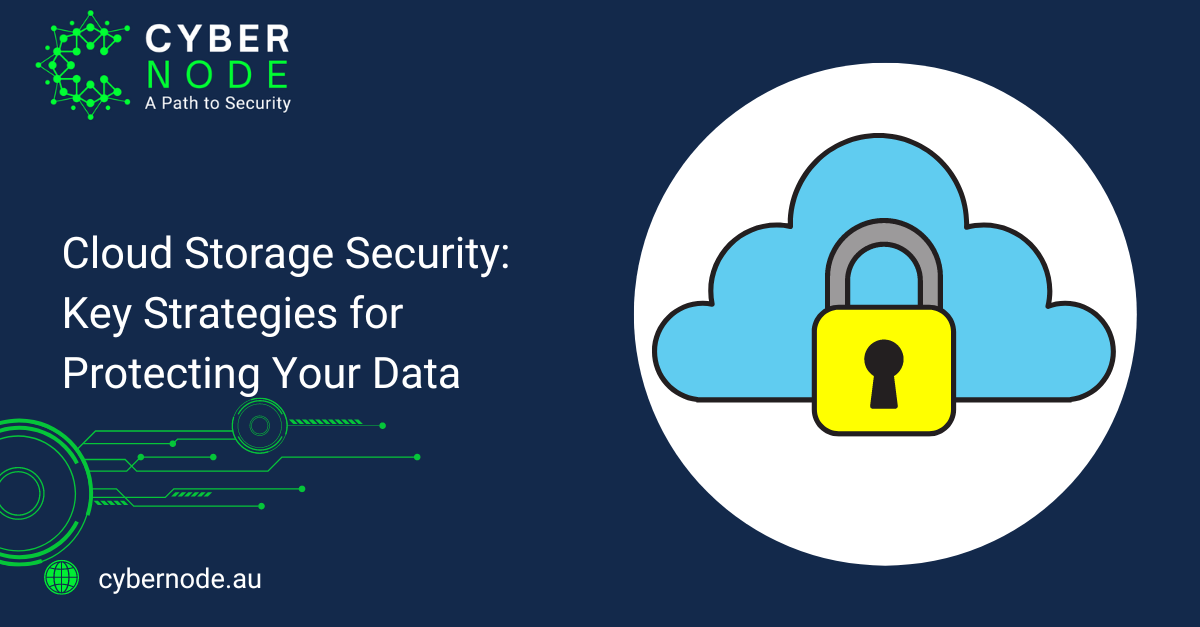
Services for cloud storage are becoming a crucial component of how businesses and people handle their data. It is undeniable that cloud storage offers the convenience and accessibility of storing critical company information as well as personal files and images. However, the use of cloud storage bring up important security issues, notably with regard to the integrity and confidentiality of stored data as with any technological innovation. It is essential to comprehend these factors and put best practices into action if you want to reduce risks and guarantee the security of your data.
Cloud Storage Security Risks
- Data breaches: Malicious actors may attack cloud storage services to obtain unauthorised access to private data. Software vulnerabilities, insider threats, or weak authentication procedures can all lead to breaches.
- Data loss: Even though cloud storage companies usually provide reliable backup options, provider faults, device malfunctions, and natural calamities can still cause data loss. Organisations face the danger of permanently losing important data if they don't have enough backup procedures in place.
- Data Interception: When information is transferred between a user's device and cloud storage servers, it could be intercepted by malicious parties. Sensitive data can be compromised without appropriate encryption procedures.
- Compliance and Legal Concerns: Organisations may be subject to legal and regulatory restrictions regarding data protection and privacy, depending on the type of data they hold. Significant consequences such as fines and legal action may arise from breaking these regulations.
Advice for Maintaining Integrity and Confidentiality:
- Use Strong Encryption: Encrypting data before uploading it to the cloud makes sure its contents cannot be read without the encryption key, even if unwanted parties obtain access to the stored data.To protect your data while it's in transit and at rest, use strong encryption like AES (Advanced Encryption Standard).
- Employ Multi-Factor Authentication (MFA): Require users to provide various forms of identity authentication, such as passwords, biometrics, or one-time codes, to verify their identity.By adding an additional layer of security, multi-factor authentication makes it much harder for hackers to access cloud storage accounts.
- Update Security Measures Frequently: Maintain software and security protocols up to date to protect yourself from new attacks. Updates and patches are often released by cloud storage providers to fix bugs and improve security features. To reduce risks, make sure these changes are implemented as soon as possible.
- Establish Granular Access Controls: Use granular access controls and permissions to restrict access to sensitive data. Assign roles and privileges according to the principle of least privilege to guarantee that users only have access to the information required for the job at hand. To avoid unwanted access, periodically check and audit user permissions.
- Backup Data Regularly: To reduce the chance of data loss, use redundant backup techniques in addition to depending on the cloud storage provider's backup options. In order to guarantee data availability in the case of an outage or disaster, use several storage locations such as backups stored on premises or usingadditional cloud providers.
- Inform Users on Security Best Practices: One of the main causes of security breaches continues to be human error. Inform users about security best practices, like making strong, unique passwords, avoiding suspicious attachments and links, and using caution when exchanging private information.
While the ease and scalability of cloud storage services are unmatched, there are important security concerns that need to be taken into account. It is possible for people and companies to protect the confidentiality and integrity of their stored data by being aware of the risks involved with cloud storage and putting strong security measures in place. A complete strategy to cloud storage security is necessary to preserve data privacy and lessen the risk of cyberattacks.
- Cloud Solutions
- Data Security
- Cyber Security
- Data Protection

